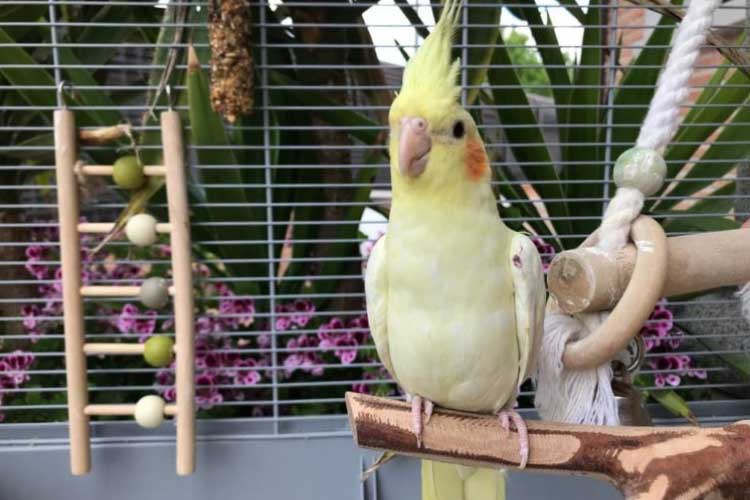Are you only feeding vegetables, fruits, and grains to your cockatiel to provide the nutrients they need to function perfectly? It might surprise you that your cockatiel also needs protein in its diet. Pertaining to that, insects are a good source of protein for birds.
So it comes down to the question, can cockatiels eat mealworms? Yes, mealworms make a perfect addition to a well-balanced cockatiel diet. Mealworms are rich in calcium, vitamins, and other nutrients. And they are nice boost of protein.
If you plan to serve mealworms to your little buddy, read this guide till the end. Here we will answer every question you might have on your mind about feeding mealworms to a cockatiel.
Can You Feed Mealworms To Cockatiels?
Let ‘s first define what mealworms are. mealworms are the beetle’s larval stage. A mealworm could be yellow in color and seem soft, but there is more to them than catches the eye.
Mealworms, which are rich in many nutrients, can give cockatiels a lot of nourishment. Their surface layer will not suffocate the bird, and mealworms are unable to defend themselves by attacking the bird.
So, your cockatiels should have little to no trouble biting the larvae and ingesting its intestines and juicy interior. Looking into mealworms’ nutritional advantages can help you quickly grasp why they are appropriate for cockatiels.
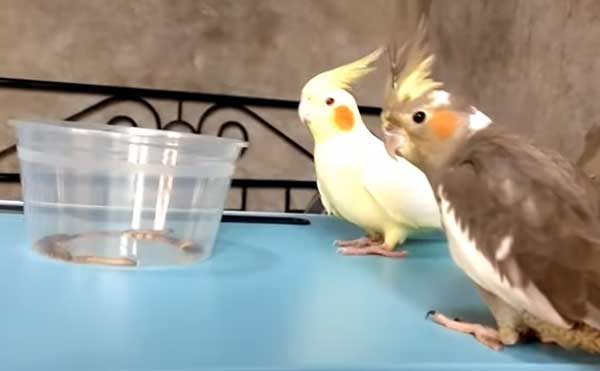
gives the parrot a protein boost
- They include fiber, which speeds up the cockatiel’s digestion.
- Mealworms that are still alive help birds stay hydrated and drink more water.
- The bird’s energy is maintained throughout the day by the vital fats and proteins in them.
So now you understand why cockatiels can eat mealworms. Moreover, mealworms for cockatiels have several other advantages, such as keeping their beaks trimmed, promoting healthy digestion (when combined with high-fiber foodstuffs), and giving birds the necessary protein you.
Mealworms, in particular, can help stop your cockatiel from plucking itself out of excessive stress. There is no explanation that mealworms shouldn’t be fed to cockatiels; they are frequently served to pet birds as part of a healthy diet.
So you can start feeding them mealworms. Nevertheless, mealworms should be served as a treat and in moderate amounts, like 1-3 times per week at max.
Do Cockatiels Like Mealworms?
Yes, mealworms are one of the favorite foods of cockatiels. Like any other animal, when mealworms are first introduced to their diet, they may not like it. But as they become accustomed to it, it will be their favorite treat.
Since your bird will have a diet high in minerals, vitamins, and proteins from the consumption of mealworms, it is best to gradually incorporate them.
You should give mealworms in a moderate amount at first. Moreover, it is also best to provide mealworms without incorporating them into other foods since you can better check the effects on the cockatiel’s body this way.
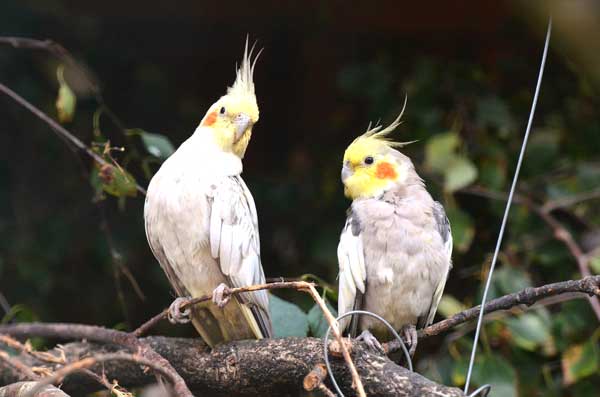
It is worth mentioning that mealworms are highly fatty foods, so if you feed the birds a lot, they’ll put on weight and possibly become obese.
The parrots enjoy eating mealworms because they enjoy tasting new treats, making it possible for them to like consuming other kinds of food as well.
What Are The Benefits Of Eating Mealworms For Cockatiels?
Because they are so nutrient-dense, mealworms are beneficial for cockatiels. Birds benefit from the mineral content of mealworms it helps them to stay alert and energetic and have healthier, more vibrant feathers.
Mealworms are a rich source of protein, as we have stated. Additionally, since they are worms, your cockatiel will undoubtedly like eating them.
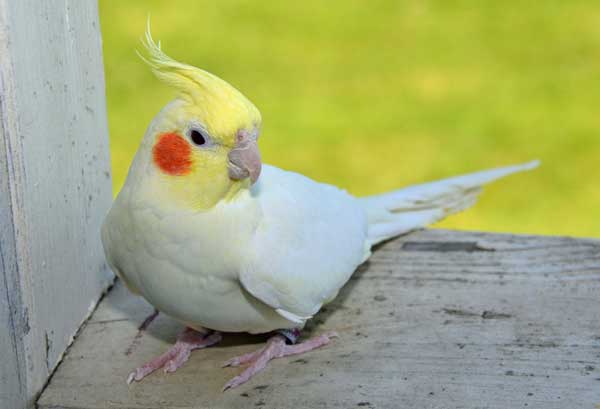
Take a peek at this nutritional information to learn more. 50 grams of dried mealworms provides the following, as per research:
- 220 calories
- 9.5 grams of fat and 2 grams of saturated fat
- 75mg of cholesterol
- 90mg of sodium
- 7.5 grams of carbs
- 4.5 grams of dietary fiber
- 27.5 grams of protein
In addition, mealworms also come with minerals and vitamins:
- Calcium
- Potassium
- Magnesium
- Zinc
- Iron
- Copper
- Vitamin A, D, E, K
- B-Vitamins such as B1, B2, B3, B5, B7, B9
- Choline
How Many Mealworms Should Cockatiels Eat?
Mealworms are nutritional, but you shouldn’t feed them in large quantities. Cockatiels should consume a variety of foods in a balanced diet, just like any other pet bird.
Mealworms should only make up 30% of cockatiel’s daily diet. Moreover, you can also substitute mealworms with cockatiels’ vegetable portions as both foods should make up 30% of a cockatiel’s diet. In addition, mealworms should only be given three times each week.
Balance is, as always, the key to a healthy diet, so it’s a bad idea to serve too many mealworms.
Additionally, it would be good if mealworms were not the only food your cockatiel eats. Consider purchasing a range of alternatives to provide your pet with various types of nourishment.
How Do You Prepare Mealworms For Cockatiels?
Firstly, make sure that your mealworms are hygienic and come from a reputable vendor. Next is the bird’s owner’s preference for how they feed mealworms to cockatiels.
Nevertheless, Mealworms can be prepared for cockatiels in two ways: directly feed them to your bird or combine them with other foods like fruits and vegetables.
The best method, especially when starting to feed your birds mealworms, is to serve them separately. This will help you understand how mealworms affect your bird.
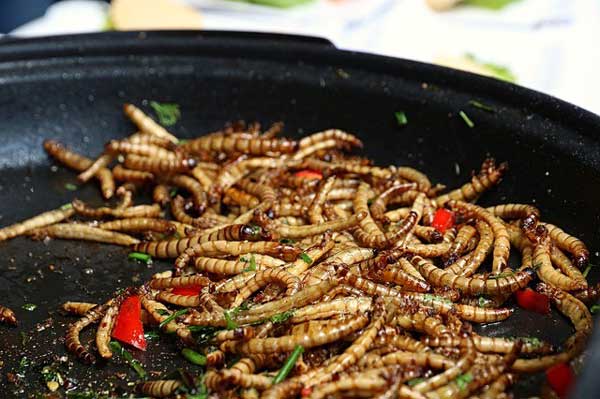
You can put the mealworms in a feeding bowl, put it in the cage, and watch as your little friend enjoys it.
For finicky birds, combining mealworms with veggies and fruits works best. They love a variety of flavors and tastes since different flavors are blended and work together.
Can You Feed Mealworms To Baby Cockatiels? If So, How?
All of the items that adult cockatiels can readily consume are unsafe to swallow by baby cockatiels. Therefore, it is crucial to understand their eating habits and diet.
Baby bird formula is edible by cockatiels.
Starting around five days of age, young birds can consume worms, but at that stage, the worms must be crushed and administered by an eyedropper. Although it may seem like a gory technique, it is vital to prevent bird discomfort.
Video: https://www.facebook.com/Zippo.Mandalay/videos/4755262321155924/
FAQs
Here we answered a few frequently asked questions for you.
Yes, you can combine mealworms with birdseed. Plus, it might be a fantastic strategy to provide your pet with a range of essential nutrients on a single plate. The point you need to remember is to constantly feed your pet in the correct quantity.
Mealworms can be eaten dry by cockatiels as well. They are often available to the wild birds dried. So your cockatiel is entirely safe to consume dry mealworms.
Conclusion
Cockatiels can certainly eat mealworms. Given its excellent nutritional value, it is strongly recommended for your birds.
Mealworms should only be provided in tiny amounts because they contain certain fats, and if they are ingested in excessive quantities, a lot of fat can build up in the birds’ bodies and cause obesity.
The mealworms’ nutrition gives the birds the energy they need to be attentive, active, and shiny.
Do you know if your cockatiels can eat pomegranate or strawberries? Read our articles about it to learn more.
